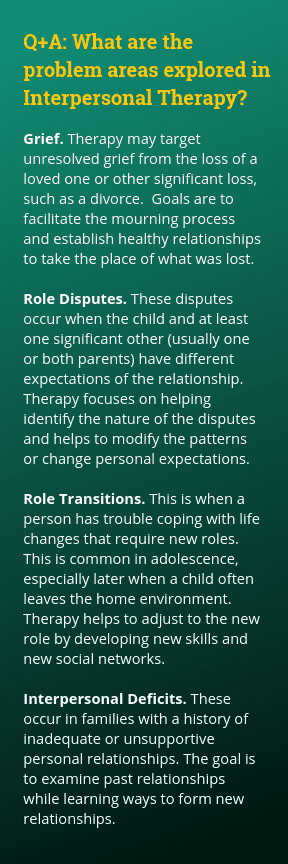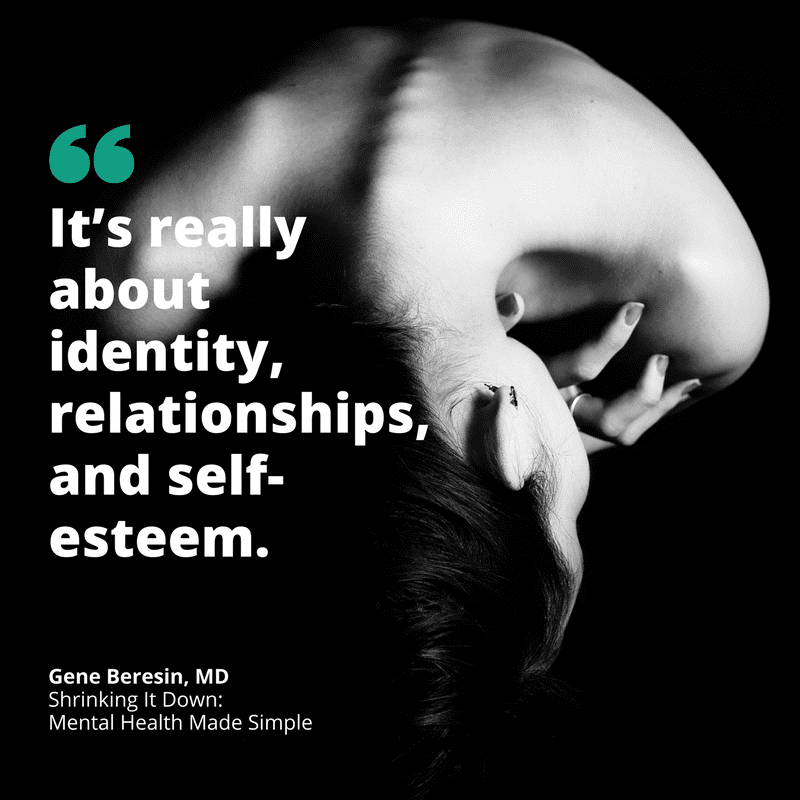What Are the Treatments for Eating Disorders?

Posted in: Hot Topics, Parenting Concerns, Teenagers, You & Your Family, Young Adults
Topics: Mental Illness + Psychiatric Disorders
Question: What Are the Treatments for Eating Disorders?
Because eating disorders are complex – and are caused by multiple factors – treatments need to address multiple influences. The major treatments for eating disorders, like anorexia or bulimia, include Family Therapy, Cognitive Behavior Therapy, Interpersonal Psychotherapy, and Medication. Group therapy is also often helpful. It is crucial to work with a treatment team who specializes in eating disorders. The treatment team typically includes a psychologist, primary care physician, psychopharmacologist (if medication is prescribed), and a nutritionist. It is important to find professionals who have a wealth of experience with eating disorders as these disorders can be difficult to treat. Unfortunately, even though these treatments are widely used, the evidence for their effectiveness is somewhat limited, especially for anorexia. In other words, eating disorders are difficult to treat and there is still much to be learned about how best to treat these disorders. But here is what we know.
Family Therapy
Family therapy is often the initial treatment of choice for children and adolescents who are still living at home. The therapist will spend time helping the family develop health communication skills. He or she will assess the family’s attitudes toward food and body image. Family therapy doesn’t necessarily mean that the whole family will attend every therapy session. Sometimes the therapist will meet separately with the child and the parents.
For example, Marsha, a teen with anorexia attended therapy with her family. In the course of family therapy, Marsha’s parents admitted they had difficulty taking control over Marsha’s eating patterns, telling their therapist, “Marsha always did whatever she wanted to do with her food – even as a toddler!” The therapist used her time with Marsha’s parents to help them establish control within the family system, and educating them on the developmental tasks of adolescence. This gave them hope. She made sure the treatment focused on Marsha’s illness – not on placing blame on specific family members. Marsha’s father was prone to saying to his wife, “You always let her do what she wanted and that’s why we’re in this mess.” But throughout the course of therapy, the therapist challenged these statements and helped the parents build an alliance between the two of them and with Marsha.
Cognitive Behavioral Therapy (CBT)
Cognitive behavioral therapy (CBT) has been shown to be particularly effective for bulimia but is also a treatment of choice for anorexia as well. Cognitive behavioral therapists help to change eating patterns by rewarding or modeling “good” behaviors. Within this approach, the therapist will challenge the patient’s belief system. For example, Marsha (whose therapist used a combination of family and CBT therapies) felt she was “fat” even though she was 5’ 4” and weighed 95 pounds. The therapist helped Marsha modify her thinking about normal body weight and shape by having her examine her views about the “ideal” woman. She helped Marsha replace her dieting and purging with more normal eating habits, through having her monitor her food intake and binging/purging episodes. She then explored with Marsha the thoughts and feelings that seemed to trigger these episodes. Marsha was weighed frequently during her sessions and she was encouraged to eat foods she was avoiding and to plan out her meals. Through the course of therapy, which lasted almost 2 years, Marsha and her therapist constantly reviewed what was working and what wasn’t, and this helped Marsha avoid relapsing into her old habits.
Interpersonal Psychotherapy
Interpersonal therapy has been shown to be quite beneficial in treating bulimia, especially if the treatment is long-term. Although research data has not shown support for the effectiveness of this approach in treating anorexia, it is sometimes used in conjunction with other approaches in treating anorexia, as well. Interpersonal therapy addresses the “interpersonal” issues – situational and personal issues – that contribute to the development and continuation of the disorder. This treatment has been found to be as effective as CBT in treating eating disorders, but it tends to work more slowly.
Some experts have suggested that interpersonal therapy may be particularly helpful to problems with social relationships, negative emotions, and low self-esteem, and that addressing these issues helps to break the negative behaviors associated with eating disorders. Interpersonal therapy doesn’t directly target a person’s eating symptoms, but rather one or more of four problem areas: grief, role disputes, role transitions, and interpersonal deficits. Early in therapy, the therapist will identify which of these four areas is most closely associated with the onset of the negative eating behaviors. Since the onset of symptoms can be linked to stressful events, such as the loss of a parent, the beginning of menstruation or adolescence, or school transitions, this therapy can be useful in addressing the underlying issues.
If you or a young person in your life is in need of support and you are not sure where to begin, you can start searching for help and support through the National Eating Disorder Association (NEDA).


 Share
Share Tweet
Tweet





